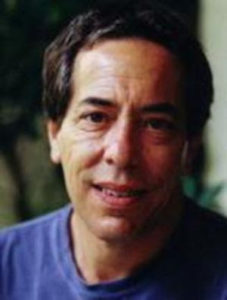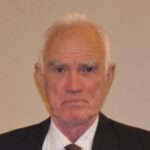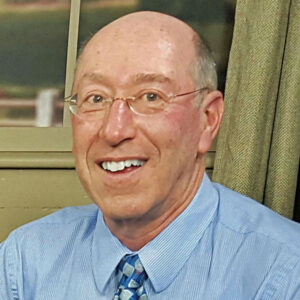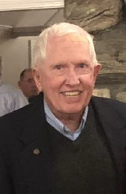 Thor Jourgensen
Thor Jourgensen
The Daily Item – Lynn, MA
How do you weave the fabric of a community into a tapestry of its triumphs and tragedies? Answer: One stitch at a time, which is what Thor Jourgensen has been doing for 27 years as a reporter for The Daily Item in Lynn, Massachusetts.
Thor is, by any definition a community-oriented reporter committed to giving a voice to residents throughout the Greater Lynn area. His early mentors in the business impressed upon him the importance of stepping aside as a writer and letting the people on whom he reported tell their story. He consistently applies those words of wisdom as he works to craft stories around people who are passionate about their community and the issues each faces.
Thor has not told one person’s story once and then moved on to the next headline or topical issue. He has written about the people who built Lynn, like the Migliaccio family’s three generations, from the immigrant who built a new life in Lynn to the sons who committed their teen years and 20s to carrying on a family legacy through their local florist business.
When he told the story of a Guatemalan congregation rebuilding a giant brick church in Lynn’s center, it was only after telling the stories of Jewish Americans who made the church a temple and brought it to its most glorious heights.
In decades spent reporting on Lynn and surrounding communities, Thor told the story of Lynn’s residents, knitting together tales of struggle and promise. He has repeatedly written about local veterans, like the woman whose face was the last one American soldiers saw before they died on a remote Pacific island. When a national veterans’ organization marked a milestone, Thor made sure the accomplishment could be seen by Item readers on the face of a local Afghan war veteran.
He told the story 20 years ago of a Lynn woman who turned terror at the hands of an abuser into founding an organization providing safe haven to abused women. In 2003, Portal to Hope and the Massachusetts Legislature honored Thor’s commitment to domestic violence prevention reporting.
In 2010 when domestic violence claimed a couple’s life, he told their story through a tragic account of how the local court system missed the warning signs of abuse.
No school child’s achievement, no senior’s hobby, no disenfranchised resident’s struggle is too pedestrian for Thor to report on, stitching the story into the tapestry of life in the city he lives and works in. Thor doesn’t just report on the community, he is an active part of the community.
Some of his greatest rewards of the job come from gratitude expressed by subjects of the more difficult stories for his fair and accurate reporting. And sometimes, he says, “thank you” from a parent, or from the subject of one of his human-interest stories, goes a long way.
These are just a few examples of many throughout Thor’s three decade-long career that demonstrate his reporting experience, the commitment he has made to community journalism, and his body of work which makes him a most worthy recipient of the Bob Wallack Community Journalism Award.
 This special award, which is named in honor of longtime New England journalist and former New England Press Association Executive Director Bob Wallack, recognizes an individual who has an exceptional record of commitment to community journalism.
This special award, which is named in honor of longtime New England journalist and former New England Press Association Executive Director Bob Wallack, recognizes an individual who has an exceptional record of commitment to community journalism.
 Robert Lowell is an outstanding and respected community news reporter who has faithfully served readers in local communities for 25 years.
Robert Lowell is an outstanding and respected community news reporter who has faithfully served readers in local communities for 25 years. Kris Craig – The Providence Journal
Kris Craig – The Providence Journal Wayne Braverman – The Bedford Citizen, Bedford, MA
Wayne Braverman – The Bedford Citizen, Bedford, MA Steve Collins – Sun Journal, Lewiston, ME
Steve Collins – Sun Journal, Lewiston, ME Still working morning til night, James D Haggerty III, is fast approaching his 83rd birthday and continues to cover and serve his communities as Editor-in-Chief of the Woburn Daily Times Inc, one of the last independent family-owned newspaper groups in Massachusetts. He is only the third editor-in-chief in 120 years overseeing the publications.
Still working morning til night, James D Haggerty III, is fast approaching his 83rd birthday and continues to cover and serve his communities as Editor-in-Chief of the Woburn Daily Times Inc, one of the last independent family-owned newspaper groups in Massachusetts. He is only the third editor-in-chief in 120 years overseeing the publications. Stanley Moulton
Stanley Moulton Thor Jourgensen
Thor Jourgensen Steve Damish
Steve Damish